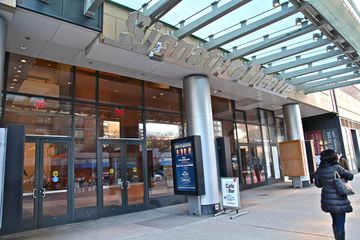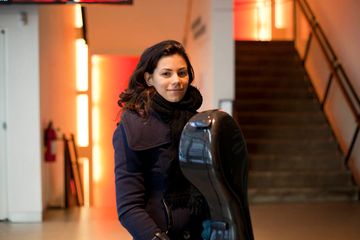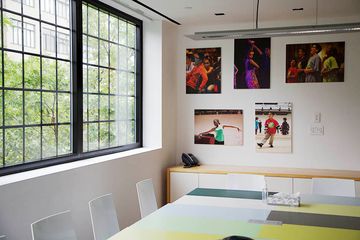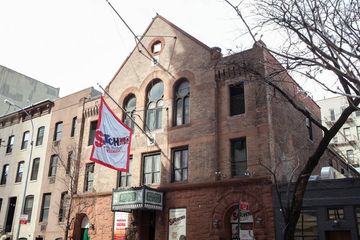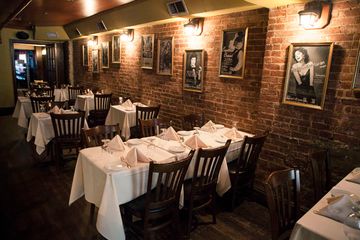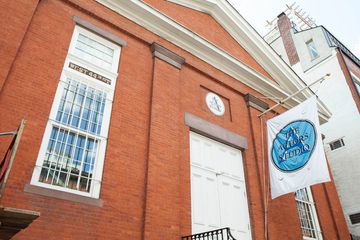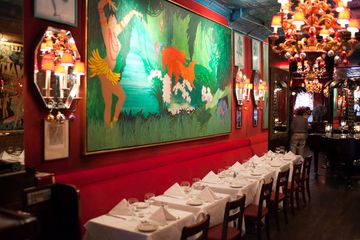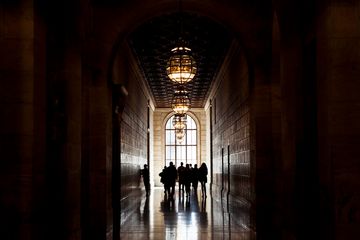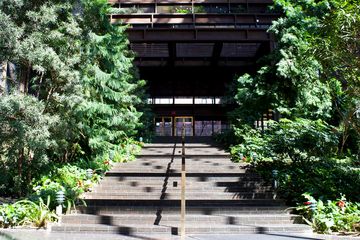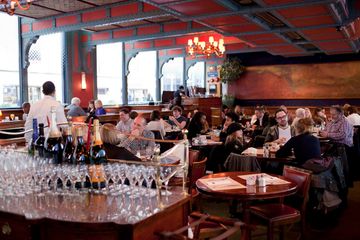Manuel Uzhca's story reads like a fairytale. He came to New York from Ecuador when he was seventeen with absolutely nothing to his name and spent time as a dishwasher in a number of restaurants. He met Jean-Claude Baker when both were working at Pronto, an Italian restaurant on the Upper East Side. In 2011, Jean-Claude offered Manuel the position of manager at Chez Josephine — little did Manuel know that only four years later, the restaurant would belong to him. Manuel still recalls the day that Jean-Claude asked him to bring in his passport. Confused by his request, Manuel chose not to comply. Jean-Claude teased Manuel by saying, “If you don't bring your passport, that means you don't want my restaurant. ” The next day, still perplexed, Manuel presented his passport. Jean-Claude marched the two of them to the bank and added Manuel's name to his account, giving him permission to sign checks for the restaurant. Shortly after, Jean-Claude announced that he was retiring, but Manuel did not take him seriously. Jean-Claude then told him that he was leaving and insisted, “I won't be back. ” Jean-Claude proceeded to his attorney's office, changed his will, and went off to the Hamptons. He called Manuel to make sure that everything was in order at the restaurant, and then, very sadly, Jean-Claude took his own life. “I did not believe I owned the place, not even when they showed me the will, ” Manuel declared. Jean-Claude was the last of the children adopted into singer-dancer Josephine Baker’s “Rainbow Tribe, ” created with a mission of racial harmony. He lived and performed with her for a time before making his way to New York and eventually opening this restaurant. It quickly became a haven for Broadway clientele, known for its charming and colorful ambiance as much as its haute cuisine. Since taking over in 2015, Manuel has continued running this famed French restaurant exactly how Jean-Claude left it — paying homage to Josephine Baker, who captured the Parisian imagination in the 1920s and did not let go for decades.


